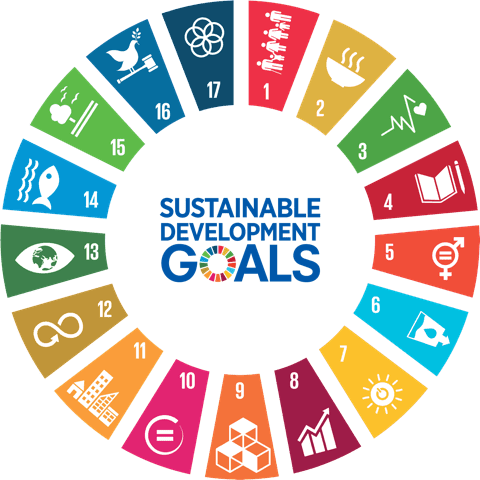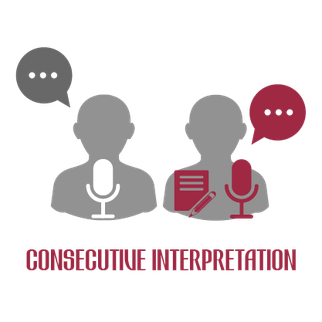SDG5 - GENDER EQUALITY
Courses tagged with "SDG5 - GENDER EQUALITY"

- Teacher: Maha Abd Elhakeem Hassan
- Teacher: Yasmine Ahmed Sweed
- Teacher: Hebat Allah Adel Shaaban Hassan
- Teacher: Yasmeen Fahd Mohamed
- Teacher: Dr.Nagla Ibrahim Saleh al-Hadidy
- Teacher: Nourhan Khaled Ahemd
- Teacher: Dr.Olfat Nour El-Din Kerney Mohammad Yussef
- Teacher: Dr.Soha Raafat
- Teacher: Amani Wageh Abd Al-Halim
- Teacher: Hala Yousry Darwish
- Teacher: Ehsan Abd El Moniem Zaki
- Teacher: Yasmine Ahmed Sweed
- Teacher: Tasneem Al-Moataz Mohamed Rashad
- Teacher: Hebat Allah Adel Shaaban Hassan
- Teacher: Noha Faisal Mohamed Abdelmotagally
- Teacher: Dr.Nagla Ibrahim Saleh al-Hadidy
- Teacher: Nourhan Khaled Ahemd
- Teacher: Dr.Kholoud Mansour Khalifa
- Teacher: Dr.Soha Raafat
- Teacher: Amani Wageh Abd Al-Halim
- Teacher: Hala Yousry Darwish
- Teacher: Maha Abd Elhakeem Hassan
- Teacher: Yasmine Ahmed Sweed
- Teacher: Hebat Allah Adel Shaaban Hassan
- Teacher: Dr.Nagla Ibrahim Saleh al-Hadidy
- Teacher: Nourhan Khaled Ahemd
- Teacher: Nadeen Khaled Mohamed Kamal
- Teacher: Dr.Soha Raafat
- Teacher: Nadia Salah El Din El Kholy
- Teacher: Amani Wageh Abd Al-Halim
- Teacher: Hala Yousry Darwish

Discourse Analysis- frequently known as “language use above the level of the sentence” provides students with the opportunity to study the meaningful production and interpretation of texts and talk. students get introduced to the field of Discourse Analysis in order to unpack texts for generating meaning and bind it with their study of society and culture. They will gain an advanced understanding of the concept of ‘context’ and its relevance in the process of the production of meaning. The course provides students with frameworks and tools to examine and critique texts and instances of language use that is much relevant to socio-economic and socio-cultural issues such as gender, social power and minorities, environment, health and pandemics
- Teacher: Rania Abd El Fattah Abd El Hameed
- Teacher: Alaa Ali El Badri
- Teacher: Hebat Allah Adel Shaaban Hassan
- Teacher: Dr.Marwa El-Sheikh
- Teacher: Dr.Nagla Ibrahim Saleh al-Hadidy
- Teacher: Dr.Zakaria Kamal Abdel Maguid Alssiefy
- Teacher: Nourhan Khaled Ahemd
- Teacher: Dr.Ghada Mohamad Al-Akhdar
- Teacher: Dr.Olfat Nour El-Din Kerney Mohammad Yussef
- Teacher: Dr.Soha Raafat
- Teacher: Dr.Radwa Zakaria Abdel-Rahman
UN Sustainable Development Goals (SDGs)
This unit addresses issues of great relevance and importance in our world today. They are the subject of vibrant discussions and debates and have actually been tabled on the agendas of numerous prestigious world-rank organizations. They have also been listed as Sustainable Development Goals (SDGs) by the United Nations. Our unit addresses two of these important goals; one of which is gender equality studied under Feminism, while the other is reducing discrimination studied under Post colonialism.
- Teacher: Maha Abd Elhakeem Hassan
- Teacher: Yasmine Ahmed Sweed
- Teacher: Hebat Allah Adel Shaaban Hassan
- Teacher: Yasmeen Fahd Mohamed
- Teacher: Noha Faisal Mohamed Abdelmotagally
- Teacher: Dr.Nagla Ibrahim Saleh al-Hadidy
- Teacher: Nourhan Khaled Ahemd
- Teacher: Nadeen Khaled Mohamed Kamal
- Teacher: Malak Khaled Nabil Mohamed
- Teacher: Maha Mamdouh Mohamed
- Teacher: Dr.Kholoud Mansour Khalifa
- Teacher: Dr.Ghada Mohamad Al-Akhdar
- Teacher: Dr.Olfat Nour El-Din Kerney Mohammad Yussef
- Teacher: Dr.Soha Raafat
- Teacher: Sohila Saad Ahmed Abd Elaziz
- Teacher: Kholoud Waheed Ezzat
- Teacher: Hala Yousry Darwish
|
Words and grammar are the basic building blocks of language. The aim of this course is to introduce contemporary morphological theory and practice. It also introduces the basics of modern syntactic analysis drawing ideas from different syntactic frameworks |
- Teacher: Rania Abd El Fattah Abd El Hameed
- Teacher: Ebtihal Abdelaziz Ahmed Helal Helal
- Teacher: Dr.Mirette Ahmes Hassan Sobhy
- Teacher: Alaa Ali El Badri
- Teacher: Hebat Allah Adel Shaaban Hassan
- Teacher: Dr.Nagla Ibrahim Saleh al-Hadidy
- Teacher: Dr.Zakaria Kamal Abdel Maguid Alssiefy
- Teacher: Nourhan Khaled Ahemd
- Teacher: Dr.Ghada Mohamad Al-Akhdar
- Teacher: Dr.Olfat Nour El-Din Kerney Mohammad Yussef
- Teacher: Dr.Soha Raafat
- Teacher: Dr.Radwa Zakaria Abdel-Rahman

LU Code : TR 301
Title : Consecutive Translation
Credit Hours/Points : 3
Level : 3
Prerequisites : TR 100, TR 101, TR 200, TR 201
Learning Outcomes:
Knowledge:
On completion of the course, for consecutive interpretation, students should:
- Indicate and account for the phenomena of oral language communication and transfer and outline the techniques of transferring language and terminology peculiar to different realms of human knowledge.
Skills:
On completion of the course, for consecutive interpretation, students should:
- Develop the intellectual abilities of working memory.
- Produce an oral account in the target language after listening to the source text consecutively.
- Develop the skill of analysing and resolving issues related to translatability problems, linguistic competence, and thus dexterously transfer source language segments from one language to another consecutively.
- Comparing and contrasting structural peculiarities of both English and Arabic languages in various fields.
- Carry out consecutive language transfer in a manageable limited time span under stressful working conditions and professional constrains.
Learning Materials:
Discussion, supervised practice and self-access laboratory interpretation assignments. Passages on various topics will be used as a teaching material.
Assessment:
20% Mid-term Exam
30% Final-term Exam
50% Coursework: 30% for practical, 10% assignments and Portfolio, and 10 % quizzes and a small project
References:
- interpreting: A corpus-based analysis,” Interpreting 7-1, p. 51-76.
- Pöchhacker, F. (in press): “‘Going simul?’ Technology-assisted consecutive interpreting,” in Bao, C. et al. (eds.) Proceedings of the MIIS Anniversary Conference, 9-11 September 2005.
- Pradas Macías, M. (2006): “Probing Quality Criteria in Simultaneous Interpreting: The role of silent pauses in fluency,” Interpreting 8-1, p. 25-43.
- Napier, J. (2003). A sociolinguistic analysis of the occurrence and types of omissions produced by Australian Sign Language–English interpreters. In M. Metzger, V. Dively, S. Collins & R. Shaw (Eds.), From topic boundaries to omission: New research on interpretation (pp. 99–153). Washington, DC: Gallaudet University Press.
- Pöchhacker, F. (2004). Introducing interpreting studies. New York, NY: Routledge. Roy, C. (2000). Interpreting as a discourse process. New York, NY: Oxford University Press. Roy, C. (2005). A discourse-based approach to teaching interpreters. In R. Locke McKee (Ed.), Proceedings of the inaugural conference of the World Association of Sign Language Interpreter, (pp. 91–100). Southampton, UK: Douglas McLean Publishing.
- Russell, D. (2002b). Reconstructing our views: Are we integrating consecutive interpreting into our teaching and practice? In L. Swabey (Ed.), New designs in interpreter education: Proceedings of the 14th National Convention of the Conference of Interpreter Trainers (pp. 5–16). St. Paul, MN: Conference of Interpreter Trainers.
- Russell, D., & Malcolm, K. (2009). Assessing ASL–English interpreters: The Canadian model of national certification. In C. Angelelli & H. Jacobson (Eds.), Testing and assessment in translation and interpreting (pp. 331–376). Amsterdam/Philadelphia: John Benjamins.
- Kalina, Sylvia. 2005. “Quality Assurance for Interpreting Processes“, Meta 50, 2
- Teacher: Dr.Rania Abdel Baky Ali
- Teacher: Dr. Safa'a Ahmed
- Teacher: Hebat Allah Adel Shaaban Hassan
- Teacher: Dalia Ibrahim Ahmed
- Teacher: Dr.Nagla Ibrahim Saleh al-Hadidy
- Teacher: Nourhan Khaled Ahemd
- Teacher: Nourhan Mohamed El arabie
- Teacher: Noureldin Mohamed Nour Eldin
- Teacher: Amr Nour El Din Hassan
- Teacher: Dr.Soha Raafat
|
Semantics and Pragmatics complement each other in language reception and language production. Semantics is the meaning of language, and Pragmatics is language in use. This course aims at introducing students to semantics and pragmatics in terms of concepts, theories and applications at the word, sentence, and text levels. |
- Teacher: Rania Abd El Fattah Abd El Hameed
- Teacher: Ebtihal Abdelaziz Ahmed Helal Helal
- Teacher: Hebat Allah Adel Shaaban Hassan
- Teacher: Dr.Marwa El-Sheikh
- Teacher: Dr.Nagla Ibrahim Saleh al-Hadidy
- Teacher: Dr.Zakaria Kamal Abdel Maguid Alssiefy
- Teacher: Nourhan Khaled Ahemd
- Teacher: Dr.Ghada Mohamad Al-Akhdar
- Teacher: Dr.Soha Raafat
- Teacher: Dr.Radwa Zakaria Abdel-Rahman

The teaching of Contrastive Analysis is conceived within the scope of comparing and contrasting Arabic and English in relation to improving Second Language Acquisition and translation through predicting learning difficulties and translation errors that may occur as a result of L1 interference and negative transfer. In this respect, the course participates in providing quality education. Participants are also equipped with approaches and tools of spoken, written and visual text analysis in English and Arabic to assess the impact of the different social contexts on text production and reception. Texts reflect issues of gender, social power as well as health & pandemics.
- Teacher: Rania Abd El Fattah Abd El Hameed
- Teacher: Hebat Allah Adel Shaaban Hassan
- Teacher: Dr.Nagla Ibrahim Saleh al-Hadidy
- Teacher: Nourhan Khaled Ahemd
- Teacher: Dr.Ghada Mohamad Al-Akhdar
- Teacher: Yara Mohamed Zidan Ashour
- Teacher: Fatma Mohammed Elmahdy
- Teacher: Dr.Soha Raafat
This unit aims to enhance the students’ knowledge and skills needed to conduct a research paper of substantial depth and length under the supervision of a faculty member, whether it is theoretical based on literature review and analysis, or empirical based on econometric, statistical or mathematical analysis.
Topics selected by students for their graduation projects are closely linked to sustainable development goals, especially SDG8 related to decent work and economic growth, as they create models where they try to determine the main catalysts for growth in certain countries or regions. Students also choose topics related to reducing poverty (SDG1) or inequality (SDG10), quality education (SDG4) gender equality (SDG5) and many other SDGs.- Teacher: Dr.Doaa Abdou
- Teacher: Nadine Amr Mohamed Abdelmoneim Hosny
- Teacher: Dr. Heba Ezz Helmy
- Teacher: Maha Ismail Mahfouz Ismail
- Teacher: Salma Kamal Zanaty Mahran
- Teacher: Nadeen Sherif Mamdouh Eladawy
This unit aims to enhance the students’ knowledge and skills needed to conduct a research paper of substantial depth and length under the supervision of a faculty member, whether it is theoretical based on literature review and analysis, or empirical based on econometric, statistical or mathematical analysis.
Topics selected by students for their graduation projects are closely linked to sustainable development goals, especially SDG8 related to decent work and economic growth, as they create models where they try to determine the main catalysts for growth in certain countries or regions. Students also choose topics related to reducing poverty (SDG1) or inequality (SDG10), quality education (SDG4) gender equality (SDG5) and many other SDGs.
- Teacher: Dr.Doaa Abdou
- Teacher: Dina Ali Mohamed Ali Seiam
- Teacher: Nadine Amr Mohamed Abdelmoneim Hosny
- Teacher: Dr. Heba Ezz Helmy
- Teacher: Fatma Hesham Saber
- Teacher: Salma Kamal Zanaty Mahran
- Teacher: Esmat Mostafa Kamel
- Teacher: Nadeen Sherif Mamdouh Eladawy
- Teacher: T.A.Nouran said mohamed abd el menaam mahmoud

This module is designed to explore the existing and challenging subjects of economic development. The course focuses on the basic concepts of economic development, the development gap, measurement of income distribution and poverty, sources of finance and analyses some of the major development problems and policies.
Many of the United Nations 17 Sustainable Development Goals are discussed in this module especially with respect to the relative success of developing countries in achieving such goals.
- Teacher: Dr.Doaa Abdou
- Teacher: Nadine Amr Mohamed Abdelmoneim Hosny
- Teacher: Dr. Heba Ezz Helmy
- Teacher: Salma Kamal Zanaty Mahran
- Teacher: Dr.Rehab mohammed mahmoud el bordiny
This module aims:
• To enable students to design, refine and do the preparatory research for the development of an independent, self-directed broadcast project;
• To enable students to produce work which will build on, extend and/or refine issues, practices, concepts and approaches which formed part of their previous learning on their programme of study;
• To promote the development of the skills required for the development of independent project work.
• To allow students to develop project work which will permit a critical reflection on broadcasting and broadcast practice.
Ideas and topics tackled in this unit serve the development of the society through discussing different social problems, community services initiatives, health and well being issues, gender equality, economic growth, reduced inequalities and partnerships. The SDGs are a main theme in this unit, students do extensive research to cover the topic in hand and develop an independent project.
- Teacher: Afaf Abdel Gawad Ali Tobbala
- Teacher: Yasmin Ahmed Ali Hasan Fouad
- Teacher: Salma Ali Samy
- Teacher: Dr.Nesseen Bahaa Aldeen
- Teacher: Habiba ElSherbiny
- Teacher: Mona Fathy Abd Elrahman Badran
- Teacher: Hala Galal Elsayed Mohamed
- Teacher: Khaled Gamal Abdou
- Teacher: Donia Mohamed Essam
- Teacher: Reham Mohamed Salah
- Teacher: Hala Mostafa Alzahed
- Teacher: Nervan Nabil Mohamed Abass
- Teacher: Fieby Raouf Fahmy
- Teacher: Reham Sami Hussein
- Teacher: Noha Samir Taha Mahgoub
- Teacher: Hams Tamer Abdellatif Abdelrazik
- Teacher: loay fahmy hassan